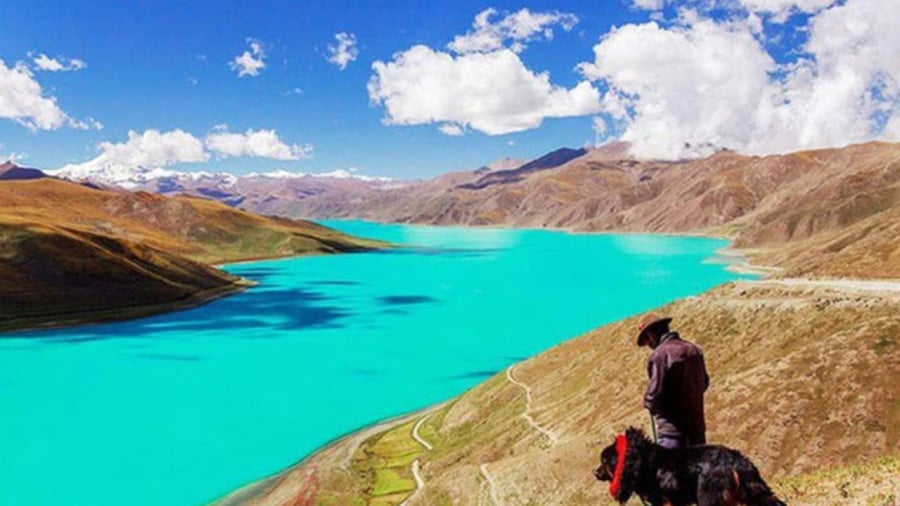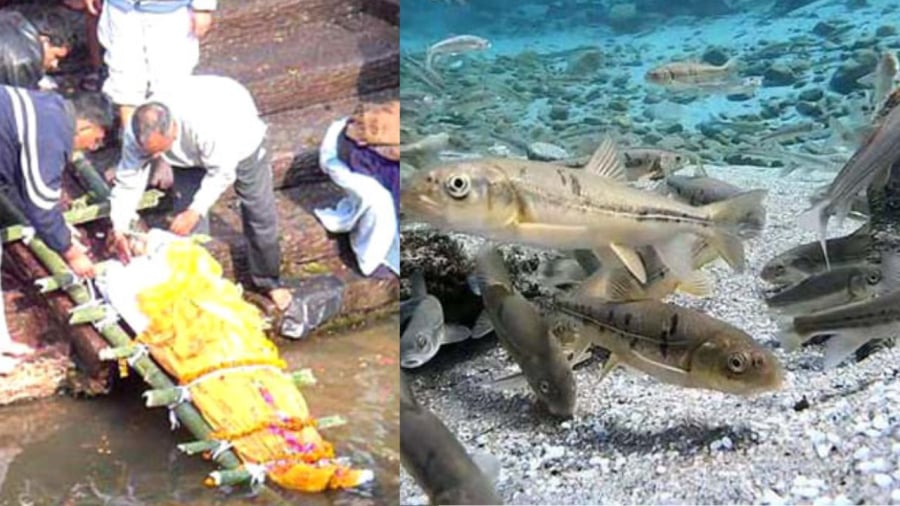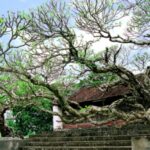Tibet: A Land of Spirituality and Untouched Beauty
For travelers, Tibet is a special land of purity. Located at a high altitude, with an average elevation of over 4,200 meters above sea level, Tibet is steeped in Buddhist culture.
Of particular note is the sacred Yamdrok Lake, also known as the Sunlight Lake, which is a famous scenic spot in Tibet. What surprises visitors is the huge fish reserve in the lake, which is never fished, even though there is no fishing ban.
Yamdrok Lake has a large fish reserve
Spanning an area of 675 square kilometers, Yamdrok Lake is situated at an elevation of 4,440 meters above sea level. It boasts a pristine and idyllic landscape. While it is not the largest lake in Tibet, it is considered sacred. The very name ‘Yamdrok’ reflects the respect and reverence that the local people have for nature’s beauty.
In the Tibetan language, ‘Yamdrok’ means ‘Swan Lake’. To the local residents, this lake holds profound spiritual significance. They believe that the enchanting beauty of Yamdrok is the earthly incarnation of heavenly maidens, bringing vitality to Tibet.
Yamdrok Lake is unique in that it has a fish reserve of over 800,000 tons. The fish in the lake are affected by the lack of oxygen and the harsh weather conditions of the high-altitude plateau, resulting in a much slower growth cycle compared to fish in lower-altitude waters. Thus, the 800,000-ton fish population is the result of natural growth over several hundred years.

Idyllic Tibetan Lake
Why don’t the locals fish?
While the Tibetan authorities have no regulations prohibiting fishing, the locals refrain from doing so out of respect for their culture and beliefs.
Tibetans consider fish sacred and refrain from eating them, despite their meat-rich diet. Just as they believe Yamdrok Lake to be the incarnation of heavenly maidens, they view the fish in Tibetan lakes as embodiments of water deities and, therefore, refrain from fishing for any purpose, as it would be considered sacrilegious. Fish are regarded as sacred creatures.
Imbued with Buddhist philosophy, Tibetans may also be reluctant to take life unnecessarily. While they consume meat, they rationalize that one cow can provide food for many people, whereas fishing would require taking the lives of multiple creatures. Thus, they strive to minimize the number of animal lives taken for food.

The Practice of Water Burial
Another possible reason for the locals’ abstinence from fishing is the traditional practice of water burial in Tibet. The Tibetans believe that water is the most important element in the world, giving and sustaining life. Thus, they opt for water burial as a way of returning to Mother Nature in the peaceful flowing waters. Even today, water burial remains a common practice among Tibetans. Typically, the deceased is wrapped in a white cloth and set adrift in a river, to be consumed by fish. Due to this belief in the spiritual connection between water, fish, and the afterlife, the people refrain from eating fish.
It is important to note that water burial does not take place everywhere in Tibet, and Yamdrok Lake is not a frequent site for this ritual. However, the sacred relationship between water, fish, and the divine has taken root in the local mindset.
From a scientific perspective, consuming fish from Yamdrok Lake may not be safe. The lake has alkaline water and consistently low temperatures, resulting in slow fish growth and challenging conditions for aquatic plant life and photosynthesis. Consequently, the fish may accumulate toxins and harmful substances from the lake, making them potentially unsafe for human consumption.
To many, Tibet remains a land of mystery and enchantment. Beyond its pristine natural beauty, it is the very air of mysticism that draws visitors to this ancient and enigmatic land. The numerous taboos and traditions reflect the deep respect and fear that the people have for their gods, their faith, and their heritage.


































